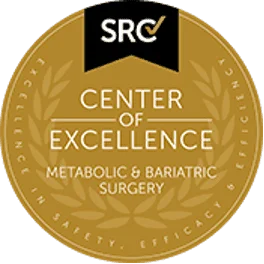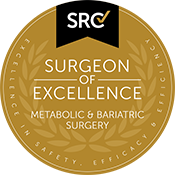Hernias happen more frequently in certain parts of the body such as the abdomen, groin and upper thigh area, and belly button area. They also can occur in any place where you have had an incision from surgery.
Hernia Types
There are different types of hernias based on their location. The most common types are listed below.
Inguinal Hernia: Appears as a bulge in the groin or scrotum. This type is more common in men than women.
Femoral Hernia: Appears as a bulge in the upper thigh. A femoral hernia is a loop of intestine, or another part of the abdominal contents, that has been forced out of the abdomen through a channel called the “femoral canal” – a tube-shaped passage at the top of the front of the thigh. This type of hernia tends to occur in older people and is more common in women than in men.
Hiatus Hernia: Normally, the stomach is completely below the diaphragm. A hiatus hernia is when part of the stomach slides through the diaphragm, the muscular sheet that separates the lungs and chest from the abdomen.
Incisional Hernia: Can occur through a scar if you have had abdominal surgery.
Umbilical Hernia: Umbilical hernia is a small bulge around the umbilicus (belly button). An umbilical hernia in an infant is caused by the incomplete closure of the muscles around the Umbilicus.
Risk Factors
Risk Factors for Hernias in general include:
- Family history of hernias
- Overweight or Obesity
- Undescended testes
- Any condition that increases the abdominal pressure is a risk factor for abdominal hernias. Some examples include: chronic cough, chronic constipation, enlarged prostate causing straining with urination, and carrying or pushing heavy loads.
Symptoms
The main symptoms of a hernia are swelling and discomfort which is aggravated by bending or lifting.
- A hiatal hernia by itself rarely causes symptoms – pain and discomfort are usually due to the reflux of gastric acid, air, or bile.
- Umbilical hernia may appear as a non-tender lump in children.
- A femoral hernia causes a grape-sized lump in the groin and many times it is not noticeable.
Hernias are “reducible” if they can be manually pushed back into the abdomen or “irreducible” if they are effectively stuck in the canal. The irreducible hernia is a dangerous condition where the blood supply to the herniated tissue is blocked within the canal cutting off its source of oxygen and nutrients. This requires urgent emergency surgery to release the trapped tissue and restore the blood supply.
Diagnosis
Your doctor diagnoses a hernia through medical history and physical examination.
Occasionally, you may be asked to undertake the following tests:
- X-rays
- Blood tests
Management
If the hernia is very small it may be left alone. However, a hernia will not get better by itself and may need to be treated surgically as they have a high risk of becoming strangulated. Wearing a truss (hernia belt) may help to relieve the discomfort of a hernia but will not improve the condition, and in some cases can cause further damage.
Surgery - Hernia Repair
A hernia repair is usually performed as an outpatient surgery with no overnight stay in the hospital. The operation may be performed as an “open” or “keyhole” (laparoscopic) Surgery.
The common “tension-free” technique uses a mesh to cover the affected area. Less commonly, the traditional “darn” repair may be performed, where surgical stitches are used to repair the area of weakness in the abdominal wall.
Prevention
Healthy lifestyle changes will improve your overall health and prevent development of hernias. Some tips to prevent hernias include:
- Understand all about hernias, risk factors, symptoms, and prevention.
- Eat healthy- avoid constipation by eating a healthy high fibre diet.
- Quit smoking to prevent excessive coughing.
- Exercise – Exercising and being active are important in maintaining your muscle strength.
- Lose weight- If you are considered overweight or obese talk with your doctor about the best way for you to shed the extra pounds.
- Use lifting equipment for heavy loads and use safe lifting and carrying techniques to avoid excessive or repeated straining.
- Schedule regular health screenings and follow your doctor’s advice.
Complications
A hernia is not dangerous in itself but there is a risk that it will get trapped (strangulated). This can cut off the blood supply to the hernia causing life-threatening conditions such as gangrene and peritonitis. If it is not treated, a hernia is likely to get larger and become more uncomfortable.
It may result in the bowel becoming obstructed. In most cases, a hernia repair operation is recommended. Another uncommon complication is recurrence.



